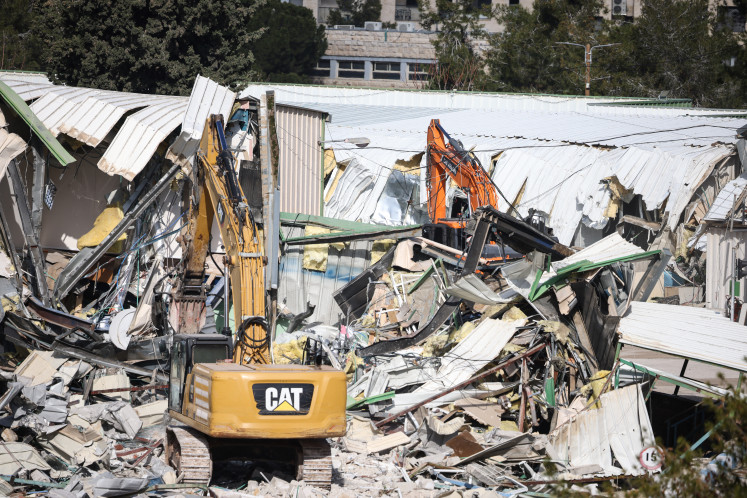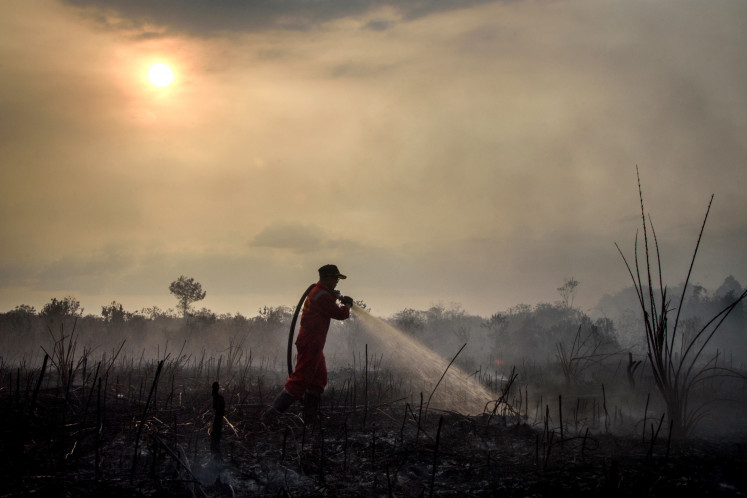Popular Reads
Top Results
Can't find what you're looking for?
View all search resultsPopular Reads
Top Results
Can't find what you're looking for?
View all search resultsGovt to develop rare earth processing
The government is laying out a plan for the development of rare earth element downstream industries that will produce a wide range of products, including for energy and transportation needs
Change text size
Gift Premium Articles
to Anyone
T
he government is laying out a plan for the development of rare earth element downstream industries that will produce a wide range of products, including for energy and transportation needs.
The Industry Ministry director general for base manufacturing industry, Harjanto, said Thursday the ministry would establish a consortium comprising research agencies, such as the Agency for the Assessment and Application of Technology Agency (BPPT), the National Nuclear Energy (Batan) and universities, to seek out ways to add value to the nation's mineral resources.
'The consortium will develop the projects that process rare earth elements and we expect foreign investors will be able to take part,' he told reporters at this office.
As many as 17 minerals are categorized as rare earth elements, which have a wide variety of applications, including in automobiles and consumer electronics. They can be found in hybrid electric motors and generators, nickel-metal hydride batteries, diesel fuel, mobile phones, computer and television screens as well as optical lenses.
Annual global consumption of these minerals totaled 136,000 tons in 2010 and is projected to reach 185,000 tons by next year.
Currently, China, which holds one-third of the world's rare earth reserves, supplies more than 90 percent of global demand. China has been challenged by advanced countries producing high-technology products at the World Trade Organization (WTO) for restricting its export of rare earth metals.
At the moment, a pilot project is being run by state-owned tin producer PT Timah and Batan in Bangka Belitung province, which according to an estimate entails 7 million tons of monazite mineral, according to Harjanto.
Under the project, Indonesia's biggest tin supplier is setting up a plant in Tanjung Ular, Muntok, to process rare earth metals found in its waste. The tin producer has stockpiled 400 kilograms of rare earth minerals from its operations for many years. When it kicks off, the plant will produce 50 kilograms of rare earth minerals each year, which will be exported.
PT Timah has said that the plant would pave the way for a more serious project with bigger investment and capacity in the future if it was proven to succeed.
Harjanto said that the government aimed to develop derivatives of the rare earth minerals for the automotive and electronics industries as well as for energy security. Some immediate plans would be to develop electric motors and generators from rare earth elements and to set up nuclear-based power plants.
'Batan has studied the possibility of utilizing one of the rare earth minerals, thorium, which is considered less dangerous than uranium, to build a power plant,' he said.
Indonesia, Southeast Asia's largest economy, has struggled to provide sufficient electricity to fuel its domestic industries. At present, its power generation depends heavily on fossil fuel, which is sourced mostly from imports and poses high costs to business players.
In a recent move, the government has raised electricity rates and several industrial sectors, particularly upstream, have complained they could not cope with the significant price hike.
In the meantime, efforts to use alternative energy sources such as gas and biofuel have not been successful due to various issues, such as inadequate infrastructure.










